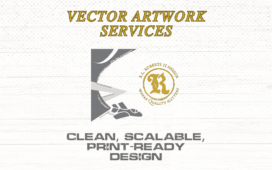Achieving and maintaining AS9100 certification is a crucial requirement for organizations operating in the aerospace and defense industries. One of the most common concerns for quality managers and compliance teams is what kind of AS9100 audit questions auditors will ask during surveillance, recertification, or internal audits. Understanding these questions and preparing evidence-based responses can make the difference between a smooth certification process and a finding that requires corrective action. However, it’s important to note questions will asked many different ways and having concrete evidence supporting each clause is always the best way to be prepared to field each one.

Why AS9100 Audit Questions Matter
Auditors use questions to determine if your quality management system (QMS) is effective, compliant, and aligned with AS9100D requirements. These questions test not only whether documented processes exist, but whether employees understand and follow them. Being ready for audit questions ensures:
- Demonstrated compliance with AS9100D clauses
- Employee confidence in responding to auditors
- Reduced risk of nonconformities
- A stronger culture of quality across the organization
Common AS9100 Audit Questions by Clause
Context of the Organization (Clause 4)
- How does your organization identify internal and external issues that affect your QMS?
- What processes do you use to understand customer requirements in the aerospace sector?
- Can you show how risks and opportunities are documented and reviewed?
Leadership (Clause 5)
- How does top management demonstrate commitment to the QMS?
- In what ways is the quality policy communicated across the organization?
- Can you provide examples of management review inputs and outputs?
Planning (Clause 6)
- How do you evaluate risks associated with product quality and delivery?
- Can you show evidence of actions taken to address risks and opportunities?
- How do you ensure objectives are measurable and aligned with AS9100 requirements?
Support (Clause 7)
- What training programs exist to ensure employee competence?
- Can you provide evidence of awareness training for counterfeit part prevention?
- How is documented information controlled and updated?
Operation (Clause 8)
- How do you control externally provided processes, products, and services?
- Can you provide examples of how design and development inputs are validated?
- What processes ensure product conformity before delivery?
Performance Evaluation (Clause 9)
- How do you monitor customer satisfaction?
- Can you show results from internal audits and subsequent corrective actions?
- How is performance data analyzed and reviewed by leadership?
Improvement (Clause 10)
- What is your corrective action process for nonconforming outputs?
- Can you demonstrate continual improvement initiatives?
- How do you track and measure effectiveness of corrective actions?
Preparing for AS9100 Audit Questions
To prepare effectively:
- Conduct regular internal audits using AS9100 audit checklists.
- Train employees to answer questions clearly, confidently, and with supporting evidence.
- Keep records up to date and easily accessible.
- Perform mock audits with lead auditors to identify gaps.
- Focus on risk-based thinking, supplier quality management, and counterfeit part prevention.

Supporting Evidence for Audit Success
Auditors will always look for objective evidence to validate answers. Examples include:
- Controlled procedures and work instructions
- Training records and competence evaluations
- Supplier performance data and approved supplier lists
- Management review minutes and KPI tracking
- Customer satisfaction surveys and complaint logs
AS9100 Audit Questions and Internal Culture
Being ready for AS9100 audits is not just about compliance. It strengthens your internal culture by making employees accountable for quality and helps leadership stay engaged with continuous improvement. Preparedness reduces stress during audits and enhances trust with customers who depend on your commitment to aerospace quality standards.
FAQs About AS9100 Audit Questions
Q: What are the most common AS9100 audit questions?
A: Auditors often ask about leadership commitment, risk management, supplier control, training records, and how nonconformities are handled. Any prior nonconformities since previous visits will be reviewed.
Q: How should employees respond to AS9100 audit questions?
A: Employees should answer truthfully, concisely, and reference documented evidence. It is better to say “I don’t know, but I can show you where it’s documented”, or “I would ask my supervisor” rather than to guess.
Q: Do AS9100 audit questions change by industry sector?
A: The core clauses remain the same, but auditors may emphasize areas such as counterfeit part prevention, supplier verification, or risk analysis depending on your role in the aerospace supply chain.
Q: How can we prepare staff for audit questions?
A: Conduct internal training sessions and role-play audit scenarios. Encourage employees to become familiar with procedures and their role in the QMS. Have them understand your quality policy and when questions can’t be answered, ask your supervisor for guidance. A culture of quality shines here.
Q: What happens if we cannot answer an AS9100 audit question?
A: If evidence cannot be provided, it may result in a nonconformity. Immediate corrective action planning is expected.

Ronnie Lee Roberts II has worked in the Department of Defense (DoD) quality space since 2017 supporting programs at Patuxent River and Webster Field (NAWCAD/NAVAIR) in Southern Maryland. Areas of expertise span a certified AS9100:2016 Rev D Lead Auditor (2022-2025) and assisting in standing up a major federal contracting entity with their foundational AS9100D certification within a machine shop environment (2017-2021). Other certifications include ISO/IEC 20000-1:2018 Lead Auditor (TPECS [2023]), and Certified CMMI® Associate (2025) with experience supporting CMMI-DEV Level 3 environments. Ronnie specializes in technical writing, document control, CAD design, quality assurance, quality control, and specializing in inspecting to specification, ensuring contract compliance, and preparing teams for success in high-stakes, audit-ready environments.















